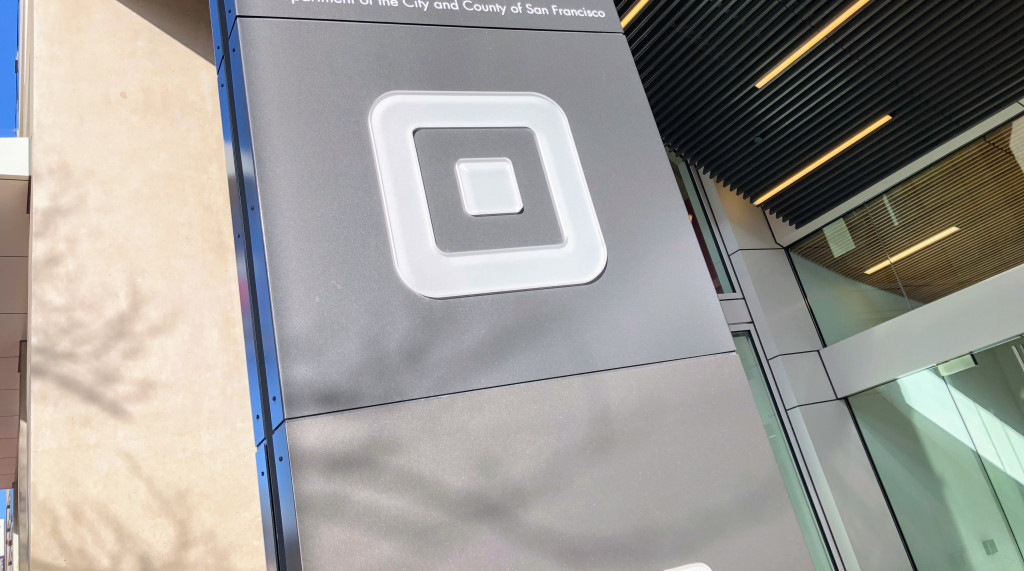Online Lending
Credit Karma Moves Towards Home Mortgages with Acquisition
August 20, 2018 Credit Karma acquired Approved last week, according to a blog post written by Approved CEO and founder Andy Taylor. Approved is a platform that simplifies and facilitates the process of obtaining home mortgage loans.
Credit Karma acquired Approved last week, according to a blog post written by Approved CEO and founder Andy Taylor. Approved is a platform that simplifies and facilitates the process of obtaining home mortgage loans.
“When we left Redfin three years ago to tackle the often painful and tedious process of getting a home loan, nearly everyone in the real estate space was focused on the front end: home search, finding agents and seeing homes,” Taylor wrote. “The industry had lost sight of the fact that a majority of lenders still used fax machines as a regular part of doing business.”
Taylor and co-founder and CTO of Approved, Navtej Sadhal, set out to modernize the process with a number of features including the DocVision Camera which scans documents using the customer’s smartphone.
Both Approved founders had worked at Redfin, a real estate search and brokerage services company, before creating Approved. Taylor and Sadhal will now work for Credit Karma in San Francisco, as Mortgage General Manager and Staff Engineer, respectively.
Founded in 2015, Approved was based in San Diego and originated nearly $5 billion in loans, according to Taylor’s post. It also has reduced document exchange time by 50%, according to the company website.
“Working with Credit Karma gives us the resources and immediate scale to accelerate our mission-driven work, reaching significantly more homebuyers than we could have imagined when we started,” Taylor wrote of Credit Karma’s acquisition of Approved.
Credit Karma, which provides free credit scores and reports, has 80 million members.
SoFi Has Massive Loss in Second Quarter
August 7, 2018 SoFi had a second quarter adjusted loss of about $200 million, according to a Bloomberg story from yesterday, citing people familiar with the company’s situation.
SoFi had a second quarter adjusted loss of about $200 million, according to a Bloomberg story from yesterday, citing people familiar with the company’s situation.
“Our Q2 financial results were negatively impacted by significantly lowered valuation of legacy loans and assets as well as the slow start to increasing prices in the face of a rising interest rate environment,” the company said in a second-quarter shareholder letter from August 3, that was obtained by Bloomberg.
At the beginning of July, the Wall Street Journal reported that SoFi had been meeting with banks to discuss raising a roughly $500 million unsecured line of credit that could go toward potential buyouts of other fintech firms.
As of the start of the year, the student loan company, which also offers other financing products, postponed an IPO to 2019. And in October 2017 it withdrew an FDIC application to obtain a special purpose (ILC) bank charter. This came amid a sexual harassment allegations against the company’s co-founder and then CEO Mike Cagney.
In March of this year, Anthony Noto, formerly at Twitter and Goldman Sachs, replaced Cagney as CEO. In Noto’s first shareholder letter as CEO in May, he said that SoFi originated $3.6 billion in loans in the first quarter of 2018, a 27 percent increase from 2017. He also said that the company added about 59,000 members in the quarter, most of them borrowers, bringing the total number close to 500,000.
Additionally, Noto wrote in the May letter, obtained by CNBC, that the company’s “SoFi at Work” program, which partners with companies to help their employees pay off student loans and other debt, expanded its funded loan volume by 118 percent from last year.
SoFi also offers mortgage products, but had to let go of 65 employees from its mortgage operation at the beginning of 2018. Founded in 2011, the company is based in San Francisco and employees more than 1,000 people.
CommonBond Issues Securitization
August 3, 2018 CommonBond, which helps people finance student loans, announced today its second AAA-rated securitization from Moody’s and DBRS. At $292 million of total collateral, the transaction is the company’s largest to date. It is CommonBond’s second securitization of 2018 and its seventh altogether. The company, which competes with SoFi, now has a total securitized loan amount to over $1.5 billion.
CommonBond, which helps people finance student loans, announced today its second AAA-rated securitization from Moody’s and DBRS. At $292 million of total collateral, the transaction is the company’s largest to date. It is CommonBond’s second securitization of 2018 and its seventh altogether. The company, which competes with SoFi, now has a total securitized loan amount to over $1.5 billion.
A mix of new and current investors participated in the transaction. Goldman Sachs served as structuring agent, co-lead manager, book-runner, and co-sponsor for this securitization. Barclays, Citi, and Guggenheim Securities also were co-lead managers and book-runners on the transaction.
“Our recent securitization continues the company’s track record of strong credit performance and consistent growth,” said Sam Luk, head of capital markets at CommonBond.
CommonBond was founded in 2011 and is based in New York.
Square Capital is Funding $130 Million a MONTH
August 1, 2018 Today Square released its Q2 2018 earnings, revealing that in the second quarter Square Capital facilitated over 60,000 business loans totaling $390 million. This is an increase of 22% year over year, and a 13% increase compared to last quarter’s loan volume of $339 million.
Today Square released its Q2 2018 earnings, revealing that in the second quarter Square Capital facilitated over 60,000 business loans totaling $390 million. This is an increase of 22% year over year, and a 13% increase compared to last quarter’s loan volume of $339 million.
Square’s growth was also driven by its Instant Deposit, Caviar and Cash Card products. Additionally, second quarter growth came from Square’s acquisitions, including Weebly, which provides tools to help individuals and small businesses create websites or online stores.
In today’s earnings call with Square CEO Jack Dorsey and CFO Sarah Friar, an analyst asked about plans for development of Square Capital. In response, Friar said that they plan for Square Capital to grow as the Square customer base grows. But she said Square is also taking more proactive steps to acquire Square Capital customers, including partnerships. Just last week, Square partnered with eBay to make loans to eBay merchants.
“We’re looking to partner [with companies] where their customers look like Square sellers,” Friar said.
Founded by Jack Dorsey and Jim McKelvey in 2009, Square is headquartered in San Francisco, with offices also in Canada, Japan, Australia, Ireland, and the UK. Dorsey is also the CEO of Twitter.
PayPal’s Actions Convey Continued Expansion of Lending Business
July 27, 2018PayPal announced its Q2 2018 earnings yesterday. Notably, total payment volume grew 27%, which is 1% higher than Q2 of last year. And the popular payment app Venmo, which is owned by PayPal, grew 78%, only slightly less than its growth of 80% from the last quarter. As expected by Wall Street analysts, revenue growth lagged total volume growth as Venmo is still largely unmonetized.
PayPal demonstrated continued commitment to its online lending division, PayPal Working Capital, when last month it made a significant investment in LendUp, a startup that offers loans to subprime consumers. This follows PayPal’s September 2017 acquisition of Swift Financial, for $183 million.
In yesterday’s Q2 earnings conference call, PayPal CEO Dan Schulman spoke about the company’s consumer lending division, PayPal Credit. He said that the company has strengthened its partnership with eBay by signing an agreement to extend its long-standing consumer financing offer to eBay’s marketplace.
“With this agreement,” Schulman said on the conference call, “eBay will continue to accept and promote PayPal Credit through 2025.”
As PayPal continues to grow both PayPal Credit and PayPal Working Capital, it does have the advantage of strong name recognition. After all, it started back in 1998 as one of the first major websites on the internet. To emphasize this, during the conference call, Schulman cited a recent ComScore study that reported that 52% of mobile consumers said they made more online purchases because PayPal was offered. And one-third of all PayPal mobile customers surveyed said they will abandon a purchase if PayPal is not offered as a checkout option.
Elevate Offers Prime-like Credit Card to Non-prime Consumers
July 23, 2018Last week, Elevate (NYSE: ELVT) launched the Today Card, a credit card for non-prime consumers with features typically included only on cards for prime users. Some of the features for the new card include credit lines up to $3,500, a mobile app where consumers can check their balance, pay their bills, zero liability fraud protection, fraud alerts, and a credit score monitor that allows consumers to view their credit score and monthly credit reports. Elevate’s Today Card is being issued by the Capital Community Bank of Utah and powered by Mastercard.

“We’ve found that non-prime consumers lacked credit card options that provide ease of use and functionality,” Jason Goldberg, Today Card General Manager, told deBanked. “We saw a need to bring a product with a prime customer experience, features, and benefits, coupled with larger credit lines to this segment. Our experience in underwriting, product design, and marketing to non-Prime consumers allowed us to thoughtfully and quickly bring this product to market in partnership with Capital Community Bank of Utah and Mastercard.”
This partnership of a fintech company with a community bank and a credit card payment network is part of a growing trend which was the central topic of a PwC study published last year. The report found that 82% of large participants in the banking industry expect to increase partnerships with fintech companies over the next three to five years.

“We are proud to be partnering with Capital Community Bank of Utah and Mastercard for this new product as we believe fintech and bank partnerships are the way of the future and important for fintech’s long-term success,” said Ken Rees, CEO of Elevate.
Elevate’s focus is to provide non-prime consumers with greater access to credit. One of the company’s more popular products is RISE, led by Tony Leopold, which provides unsecured installment loans and lines of credit to consumers with low credit who are often turned away by traditional credit providers. Elastic is another popular product under the Elevate umbrella that is designed for unexpected expenses. Elastic is a bank line of credit that makes it easy to access money as soon as the following business day.
Elevate went public on the New York Stock Exchange in April of last year. The company was founded in 2014 and is headquartered in Fort Worth, Texas, with offices in Dallas and San Diego in the US and in London and Bury St. Edmunds in the UK. The company employs 650 people worldwide.
Australia Brimming with Alternative Lending Activity
July 18, 2018 OnDeck announced today that it has closed on a $75 million (AUD) asset-backed revolving credit facility with Credit Suisse for its business in Australia. This will be used to refinance OnDeck Australia’s current loan book at a significantly lower cost, as well as to fund future originations there.
OnDeck announced today that it has closed on a $75 million (AUD) asset-backed revolving credit facility with Credit Suisse for its business in Australia. This will be used to refinance OnDeck Australia’s current loan book at a significantly lower cost, as well as to fund future originations there.
This comes shortly after Lending Express CEO Eden Amirav told deBanked that the success his company had in Australia in just a little more than a year gave them the confidence to enter the U.S. market.
“After the immense success we’ve had in the Australian market, we knew that our platform was ready to take on the U.S.,” Amirav said in June.
And several large fintech companies, including OnDeck, joined forces this month to create a set of best practices, called The Code, that would regulate how fintech companies operate in Australia. The market down under has seen a fairly rapid expansion over the last several years.
Some of the major fintech companies there include Prospa, OnDeck, Capify, GetCapital, Moula and Spotcap.
DFS Releases Recommendations for Online Lending
July 12, 2018
The New York State Department of Financial Services (DFS) released a report on Wednesday on the subject of online lending in the state. The report was mandated by a bill signed by New York Governor Andrew Cuomo on June 1 of last year. According to the original bill, this report was to be researched and composed by a task force of multiple parties. But in the eleventh hour, the section regarding the task force was struck. The report is to be presented to the governor, the temporary president of the senate, the speaker of the assembly, the chair of the senate standing committee on banks, and the chair of the assembly standing committee on banks.
Wednesday’s 31-page report is based on survey responses from 35 online lenders operating in the state, lending both to businesses and to individuals. One of the revelations in the report is that, from the data obtained, “New York individuals appear to account for a higher total dollar amount of loans than New York businesses.”
The report presents three primary assertions:
Equal Application of Consumer Protection Laws.
The report establishes that New York has strong consumer protection laws and regulations that apply to financial institutions. “These protections should apply equally to all consumer lending and small business lending activities,” the report reads. The report explains that there are strong protections against payday lenders and indicates that there should be strong protections across the board, even though the financial products and the consumers may vary widely.
Usury Limits Must Apply to All Lending in New York.
The report asserts that access to credit at usurious rates has long been prohibited in New York and that online lenders should not be able to bypass this by having arrangements with banks in other states, like Utah, where the usury laws are different. In New York, the civil usury rate is 16% and the criminal usury rate is 25%. But because online lenders have arrangements with out-of-state banks, they can charge interest at rates well above 25%.
Currently, if an online lender sues a merchant for not paying, the merchant cannot use usury as a defense. In the report, DFS recommends that a business should have the right to present usury as a defense.
All Online Lenders Should be Licensed and Supervised.
The report states that New York State chartered banks, credit unions and licensed non-depositories are subject to regular examinations by the DFS and, if applicable, federal regulatory agencies.
“Many online lenders remain unlicensed in New York with no direct supervisory oversight from a safety and soundness or consumer compliance perspective,” the report reads. “Direct supervision and oversight is the only way to ensure that New York’s consumers and small business owners receive the same protections irrespective of the channel of delivery [of financing.]”
Some of these issues relate to the well-known 2015 Madden v. Midland Funding court decision, in which a credit card consumer (Madden) won a case against a debt-collection agency (Midland Funding) because the court decided that Midland, as a non-bank, was not allowed to charge interest above what was allowed in the state.





























